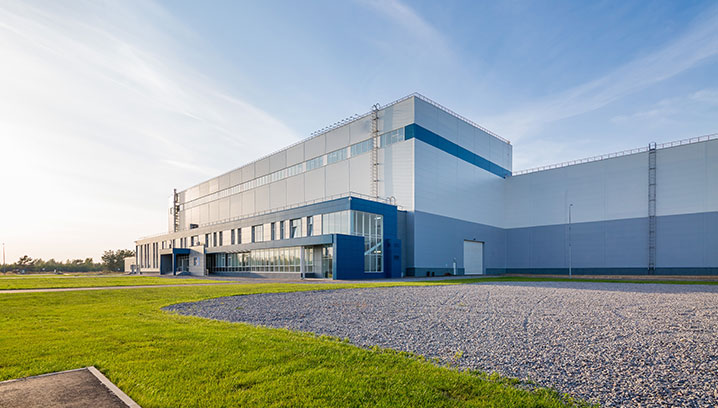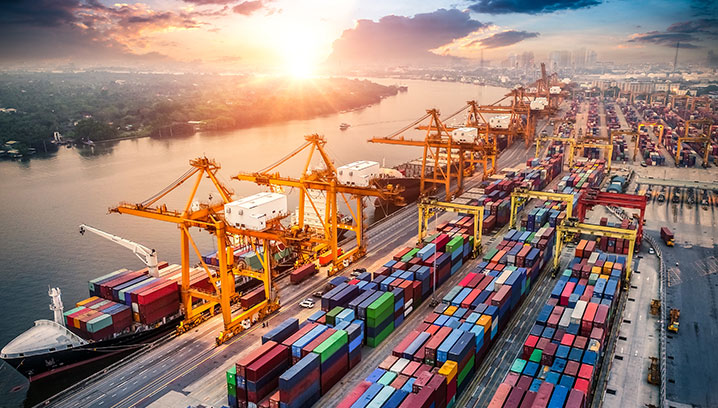An overview of the most important risks for companies
Every company faces complex, individual challenges. This is part of entrepreneurial risk, as long as the risks are calculable. However, unforeseen risks can quickly become a threat. We provide an overview of the most important risk areas and present possible solutions.
Today's corporate risk landscape is characterised by risks that develop rapidly and interact with one another. Individual risks become interconnected risks that form so-called poly-risks or multiple risks. Risk areas such as geopolitics, cyber security and legal regulation interact with one another. Identifying these risks early on and managing them correctly is now a matter of survival.
Funk creates transparency. Only when companies recognise business risks early on and understand the interrelationships can they actively take countermeasures and protect themselves from unexpected developments. As a system provider for risk solutions, we are happy to accompany you on this journey.
White Paper: Connected Risks Insights 2.0
Companies are facing a new risk landscape in which interconnected crises are becoming increasingly significant. The Connected Risks Insights 2.0 white paper outlines important developments and provides specific recommendations for action.
Read now (in German)Top risks for companies

Cyber risks
Whether data theft or ransomware, cyber attacks are among the greatest threats to businesses. IT departments cannot tackle this growing challenge alone; companies need to think and act holistically.
Learn more
Political risks
Political risks include not only war and terrorism, but also government measures such as tariffs and subsidies that affect international companies. It is therefore crucial to assess political risks correctly and take appropriate measures.
Learn more
Business Interruption
In a world of interconnected supply chains, business interruptions can lead to significant financial losses. Management should therefore be aware of the worst-case scenario and prepare for it with appropriate measures.
Learn more
ESG risks
Risks relating to the environment, social issues and corporate governance are multifaceted and can have a negative impact on a company's assets, financial position or earnings.
Learn moreOther business risks

Property damage
Among the most difficult risks for companies to calculate are damage to company buildings, production facilities and inventory, for example due to fire or theft. Property insurance is therefore a fundamental form of protection for companies.
Learn more
Transport damage
The transport of goods by road and rail, in the form of freight or air transport, has always been an essential part of global economic traffic. Globalisation has made routes longer, transport chains more complex and risks increasingly multifaceted.
Learn more
Credit risks
In the wake of globalisation, supply chains and customer networks are becoming increasingly complex. Nevertheless, many companies supply only one or a few major customers. The default of such a customer can quickly become a situation that threatens the company's existence.
Learn more
Liability risks
The liability potential of companies varies depending on the industry, customer base and export activities. However, all companies have one thing in common: the essential importance of liability insurance, because even small mistakes can cause serious damage.
Learn more
Fleet risks
For many companies, having a fleet of vehicles that is ready for use at all times is a key factor for success. However, the risks associated with the purchase and operation of company vehicles vary depending on the industry, company structure and fleet size.
Learn more
Accident damage
Accidents can happen quickly, whether due to carelessness, force majeure or wilful endangerment. Statutory accident insurance covers accidents at work and accidents on the way to work. However, your insurance benefits are usually insufficient.
Learn more
Technical risks
Many companies rely on the operation of complex technical equipment or machinery. This entails risks: in addition to property damage, there is also the threat of resulting business interruption losses, which can have serious consequences.
Learn more
Professional Liability Risks
Every company faces a range of existential financial risks. Reliable insurance must take into account the specific needs of a company as well as the entire spectrum of the insurance market.
Learn moreWhy is hedging against corporate risks becoming increasingly important?
The risk landscape has changed fundamentally in recent years. Whereas the focus used to be on hedging against individual risks such as property damage or transport damage, today's risk landscape is much more complex and interconnected. In addition, cyber incidents, pandemics and natural disasters already pose a cross-border threat to the economy and will occur even more frequently in the future. Companies must find ways to deal with both these systemic risks and traditional insurance issues in order to secure their business in the long term.
Risk management and insurance solutions
Business risks can never be completely avoided – but they can be identified, assessed and mitigated. Only those who understand the interrelationships and recognise business risks at an early stage can take active countermeasures and thus protect themselves against unexpected developments. Professional risk management and tailor-made insurance solutions are therefore essential components of any successful corporate strategy, regardless of the economic sector, industry or size of the company.